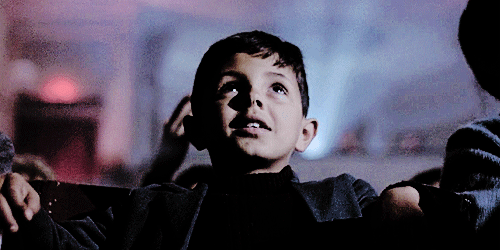"Seems that I have been held in some dreaming state, a tourist in the waking world, never quite awake" - F+tM, Blinding #np
Awakenings, a 1990 movie based on Oliver Sacks' memoir of the same name, tells a story of medical miracle that happened revolving the life of a physician named Dr. Malcolm Sayer and one of his patients, Leonard Lowe, who was in catatonic stage due to an epidemic called encephalitis lethargica. To me this is not just another movie of discovering cure for illness and such, it tells a story of how life puts people together in a strangest way, and connect them in order for them to take lesson from one another. These two characters particularly, learnt so much from one another, and I would like to write about both of them.
Dr. Malcolm Sayer, a physician with a purest of heart, having difficulties on blending in with society as he prefer to be alone, living life with as minimal contact from another human being as possible. He was hesitated to take the job as the physician at the chronic-care hospital, as he did not like the idea of attending the patients and work with other doctors as well. Nevertheless, he took the job, with the best intention, he slowly adapting with the environment and became fond of the place. One of the themes surrounding Dr. Sayer is Hope. Dr. Sayer did not conform to anything the staff said, nor he cared to be accepted by the other colleagues. Even at the beginning of his curious discovery about the reasons behind the patients' catatonic state and only Nurse Eleanor Costello believed in him at that time, he kept on researching about the disease until he found the L-Dopa drugs could potentially help the patients. Dr. Sayer believed in himself and hope for the best for his patients. The scene where Dr. Sayer do not have the definite answer to the effect of the drug, but need the consent from Leonard's mother, is one of the most powerful scene on the movie. Just by answering he's not sure what the drugs will do, but instead telling his hope for the drug was convincing enough for Leonard's mother to sign the consent. Ultimately, the drug worked, it woken up Leonard and other patients from their deep frozen sleep. This shows Dr. Sayer did not take no for an answer, but he also convinced people around him with positive persuasions, and not afraid to try new things while observing the patients from different angles than other doctors.
The story continues with Leonard Lowe, when he was awakened from his catatonic state, he was almost like reborn to the world, quickly learning how to live his life after been in the "sleep" for many years. While he was still in the catatonic state, Leonard could not move, making him unable to obtain many basic human needs by himself. His mother helped him, and sent him to the hospital to get more care. After awakened, Leonard slowly obtaining his basic needs. This can be relate with Maslow's Hierarchy of Needs (Ciccarelli & White, 2014) . At the initial stage of awakenings, Leonard learned to obtain both his physiological needs by eating, walking, talking and cleaning all by himself. As he slowly progress, Leonard starts to question about his own safety, his needs to walk outside alone and be free. It also progress to another stage, which is Love and Belongingness needs where he fell in love with a woman named Paula. This shows as he gets his basic needs, he moved to another higher stage of the hierarchy. It is very refreshing to see the movement in hierarchy from a grown man like Leonard, rather than seeing it from an infant or a child.
 |
| Leonard and his love interest, Paula |
Other than that, this movie leave an impact to the viewers on the meaning of understanding other people's struggle. The miracle that happened in the hospital changes the perspective of the caregivers, as they learnt the patients are more than just patients, they are all human regardless of their state. At the end of the movie it shows how to staff treat each of the patients as individuals, and caring for them in more loving and humane way.
Reference(s):
Ciccarelli, S. K. & White J. N. (2014). Psychology. United States of America: Pearson Education Limited.






